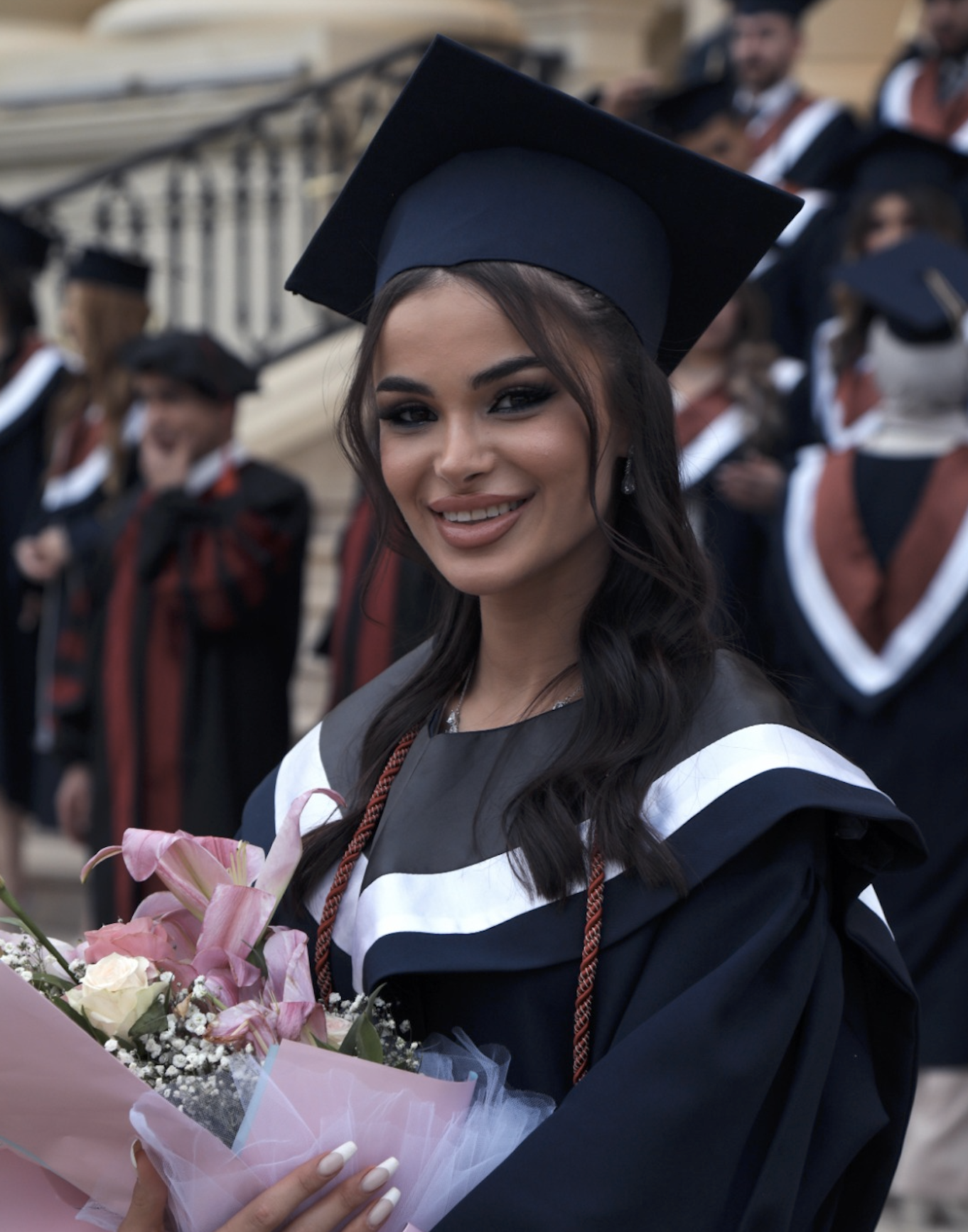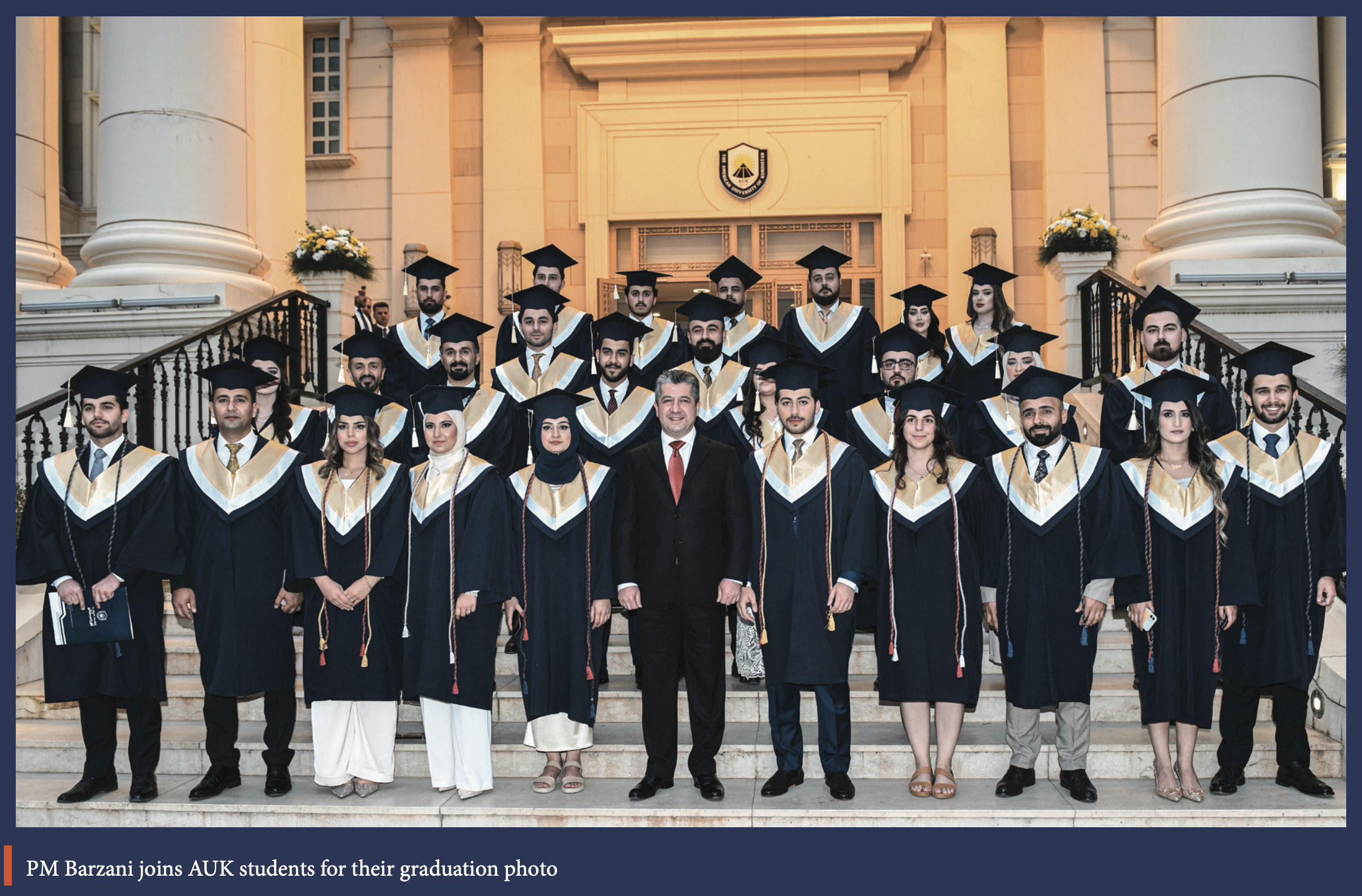Founded in 2014 as a non-profit institution of higher learning by Masrour Barzani, the American University of Kurdistan (AUK), located in Duhok, provides an American-style education based on the liberal arts model. Currently, AUK offers eight bachelor’s programs across four colleges: Engineering, Business, Arts & Sciences, and Nursing. Academic programs focus on transformative knowledge and innovative problem solving that address real-life issues. Extracurricular activities ensure the holistic development of the students with opportunities to advance in the areas of volunteerism, community service, and leadership. This approach to education prepares graduates for success in their professional and personal lives.
The adaptation of the American model has been strengthened by the award of three competitive grants from the U.S. Department of State (2020, 2021, and 2022) totaling over $11 million. These grants have supported partnerships with U.S. universities with the aim of redesigning bachelor’s programs in preparation for program-level accreditation; establishing state-of-the-art BIM, FAB, and Nursing Simulation Labs that have shifted the pedagogy toward innovation and applied learning; and growing student-support structures to address the needs of an increasingly diverse population. Work has also focused on AUK’s progress toward institutional accreditation with the New England Commission of Higher Education. Collectively, these initiatives ensure that AUK achieves parity with universities in the United States, which will facilitate student, faculty, and staff mobility, exchanges, and collaborative research opportunities.

Challenges
However, developing a true American-style higher education in Iraq comes with logistical, fiscal, and cultural challenges. It also comes at a premium, and access remains an issue due to the high cost of tuition, which captures only a fraction of the true cost of education. Women need support to reach parity with their male peers, especially in the STEM and entrepreneurial domains. Vulnerable populations, notably minorities, IDPs, and refugees, need customized programming to develop the knowledge and skills to start businesses and become self-sufficient. Innovation needs to be fostered to inspire students, diversify the economy, and move Kurdistan forward to become the knowledge nation envisioned by the government. And, there is still more that the University needs to accomplish in respect to capacity building and advancing its infrastructure to truly become efficient and transparent in its operations.
In addition to the U.S. partnerships and accreditations, the University is committed to pursuing the following objectives:
- Establishing a sustainable ecosystem dedicated to job creation, innovation, and private sector development.
- Ensuring that all qualified students have access to an American-style higher education so that the student population mirrors the diversity across the Kurdistan Region of Iraq (KRI); this necessitates national and international corporates and organizations to support scholarships to fund the education of those from marginalized and vulnerable populations.
- Promoting sustainable and innovative technologies through the establishment of teaching-learning labs that will serve as regional centers for research, innovation, and the business creation.
- Adopting and adapting international best practices in operations and administration that will provide the tools for data-driven decision-making and foster institutional effectiveness.
Impact
A nation can only achieve a strong economy and enjoy social and political progress if it invests in education. As the President of AUK, I lead the National Task Force on K-19 Education, founded in 2021, to support the KRG Ministry of Education and the Ministry of Higher Education and Scientific Research to assess the current system, research international best practices, and formulate recommendations for reform. In the past year, the Task Force focused on stakeholder engagement in three areas: University Admissions, Technical and Vocational Training, and Early Childhood Education. Additional areas of interest include conducting a market study analyzing the alignment of the academic programs across the KRI with workforce needs, online platforms to connect students with internships and employment opportunities, and the drafting of a strategic plan for the Ministry of Education. The Task Force continues to be of service to the ministries and hopes that in the coming year, after the elections, education will be foremost on the agenda.

Regarding inclusion, the economy of Kurdistan can only progress if all of its citizens participate. While the percentage of AUK students who are female is increasing (from 40% in 2021 to 44% in 2023), which is partially attributable to scholarships where a majority of seats are reserved for women, additional assistance is needed to support their persistence to graduation and long-term professional success. In a region where only about 25% of women in their twenties are employed outside of the household, it is important for AUK to focus on their professional aspirations and work force preparedness. As stated above, more funding is needed from the public and private sectors to ensure that no woman is left behind.
It is also important to note that the University must seriously address the specific needs of IDPs and refugees, especially thosestruggling with various traumas. Programming such as gender-based counseling and networking with successful role models will serve to engage and inspire participants. These interactions also focus on tools for success, including roadmaps on starting SMEs as well as ventures in social entrepreneurship. An example is the implementation of a certificate program in business start-ups for women IDPs and refugees; the curriculum includes English language, business management, accounting, human resource management, and market assessment, and will also feature long-term mentorships to support participants past the end date of the classes. This program will be administered by AUK’s Center for Academic and Professional Advancement.
AUK hopes that these tactics will ensure that all students of the KRI enjoy equal opportunities and the support that they need to succeed academically and professionally. These will include networking support so that everyone can effectively transition to careers, achieve economic self-sufficiency, and contribute to the economic, social, and political progress of Kurdistan – the ultimate goal of a higher education institution.
Dr. Randall Rhodes holds a Ph.D., MA, and a BA in Art History from the University of Chicago. He joined AUK as President in September 2020. As the University progresses on its path toward U.S. institutional accreditation, he has focused on institutional capacity building across the administrative and academic units and the implementation of policies and procedures aimed at ensuring institutional effectiveness and efficiency. Prior, he served as provost at the American University of Armenia and as professor and administrator at Frostburg State University, Frostburg, Maryland. He is originally from Rochester, New York.

